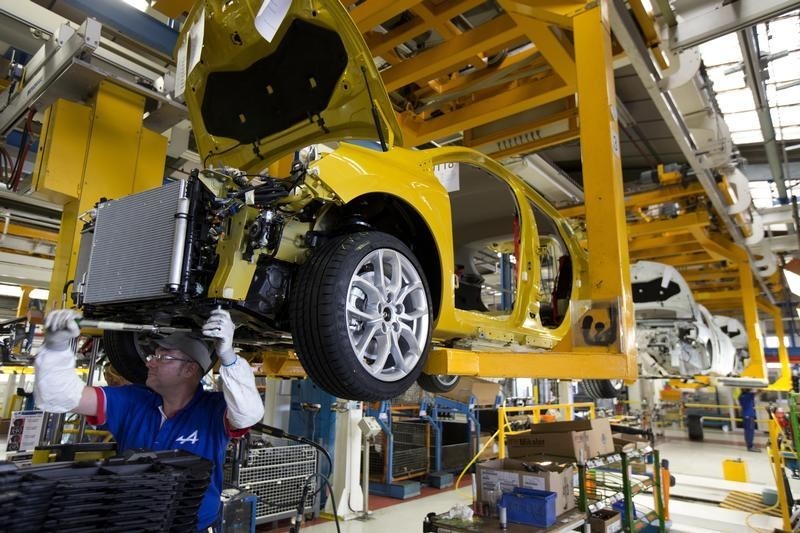By Jonathan Cable
LONDON, Oct 23 (Reuters) - - Euro zone business activity picked up more than expected in October as new work for services companies flooded in at the fastest rate since April, but there was still no sign of inflationary pressures, a survey showed.
The survey data should be welcomed by the European Central Bank, coming more than six months after it embarked on a trillion-euro quantitative easing programme to try and boost inflation and growth in the troubled bloc.
What will disappoint policymakers was the way companies cut prices again, after holding them steady in September and increasing them for the first time in more than three years during August.
Consumer prices fell in the euro zone in September, but the ECB - which wants to see inflation just below 2 percent - left monetary policy unchanged at its meeting on Thursday.
ECB President Mario Draghi said after the meeting the bank would review in December what more it could do to tackle the threat of weak prices, saying risks to inflation and growth remained on the downside.
Still, Markit's Composite Flash Purchasing Managers' Index <EUPMCF=ECI>, based on surveys of thousands of companies and considered a good guide to growth, came in at 54.0 this month, up from September's 53.6 and above even the most optimistic forecast in a Reuters poll, which predicted a dip to 53.4.
The index has been above the 50 mark that separates growth from contraction since July 2013.
"It's a sign the economy is performing reasonably well. However, it suggests that while QE appears to be having some benefit, it's not having a big enough benefit," said Chris Williamson, Markit's chief economist.
Williamson said the survey pointed to fourth quarter economic growth of 0.4 percent, in line with a Reuters poll last week. [ECILT/EU]
The composite output price index dipped to 49.8 from last month's 50.0, but price cutting meant the new business index for services rose to a six-month high of 54.1 from 53.6.
That drove the overall services PMI up to 54.2 from 53.7, confounding expectations in a Reuters poll for a fall to 53.5. A sister survey covering manufacturers held steady at September's 52.0, beating the median forecast.
A factory output index, which feeds into the composite PMI, dipped to 53.3 from 53.4 but manufacturers appeared to benefit from a weaker euro <EUR=> - it has weakened by 7 percent this year - as the new export orders index rose to a four-month high of 52.6.

"If there is anything positive we can get from this it is that we are seeing signs of companies being more aggressive in terms of boosting their productivity and competitiveness," Williamson said.